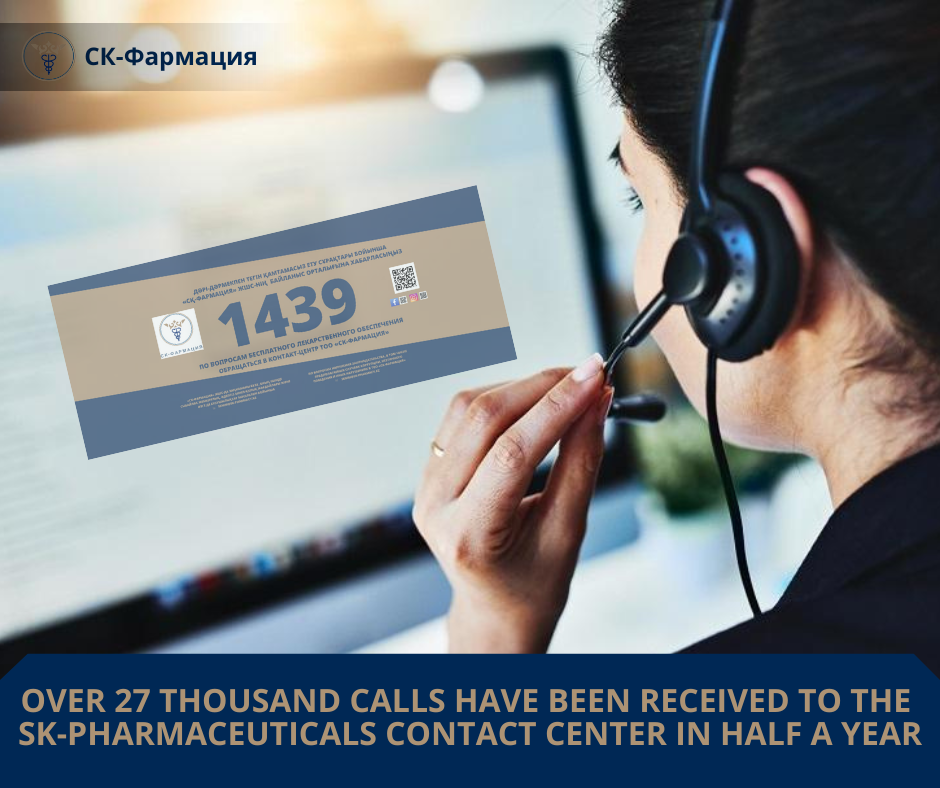
Providing citizens with high-quality and effective medications has always been a priority in preserving the health of the nation. The main task is to organize work in such a way that the medicine supply system can quickly and clearly respond to changes in demand, be flexible in any emergency situation and focus primarily on the needs of citizens.
Considering the social importance of prompt interaction with patients and the public, the Single Distributor has operated a contact center with the short number 1439 for many years.
All calls are free - both for landline and mobile phones.
Operators accumulate all data from the population about supply disruptions and provide information on the timing and dates of delivery of necessary medications, which are dispensed free of charge. Each request is promptly reviewed, and if necessary, medicines/medical products will be redirected from another medical organization, or delivered from the distribution center where the supply of necessary medicines is stored.
Key indicators for the first half of 2024
In the first six months of 2024, the contact center received 27,767 calls from the population regarding drug supply issues, for which 33,442 client cards were created.

The majority of requests were received regarding issues of outpatient drug provision. 79% of calls came from urban residents and 21% from rural residents.
Of the total number of calls, 3,923 calls are of an informational nature, of which 1,564 calls are for unpurchased drugs and 65 are from eGov.kz users.
The largest number of calls came from residents of Astana and Almaty, a total of 13,783 calls or 41.2% of the total number of calls for the first half of 2024.
TOP 5 regions with the largest number of requests:
The least number of requests were received in the Ulytau region (257 or 0.7%) and the Mangistau region (414 or 1.2%).
Information on registered patients
Most requests came from patients with the following diseases:
The smallest number of requests is for diseases of the digestive system (gastritis and duodenitis, irritable bowel syndrome), acute respiratory infections, reactive arthropathy - 1 request each or 0.003% of the total.
The largest number of requests for medications with trade names:
The contact center for drug supply issues collects data from the population about disruptions in the supply of medicines. Daily recording and monitoring of incoming requests and complaints is maintained.
Analysis of information received from the population, UPIS reporting data, data on preliminary and final applications from medical organizations allows us to establish the root cause of the lack of supply of drugs.
Each request is given attention, each complaint is considered individually, and the reasons for the lack of support are clarified. To resolve problematic issues regarding the lack of supply and under-delivery of medicines, complaints are sent to the structural divisions of the company for further processing.
The contact center, together with the supervisors of the regions, regional representatives and the logistics department of the Unified Distributor, works with each complaint on the facts of non-supply of medicines/medical products and on current underloads and transits, with monitoring of the actual receipt of drugs by patients.
Monitoring and improving the quality of service
Contact center employees monitor the quality of operator-client conversations and the accuracy of the information provided:

You can evaluate the quality of service provided by operators at the end of the conversation.
During the reporting period, 4,219 respondents rated the work of operators. The customer service quality rating was 4.9 points out of 5.